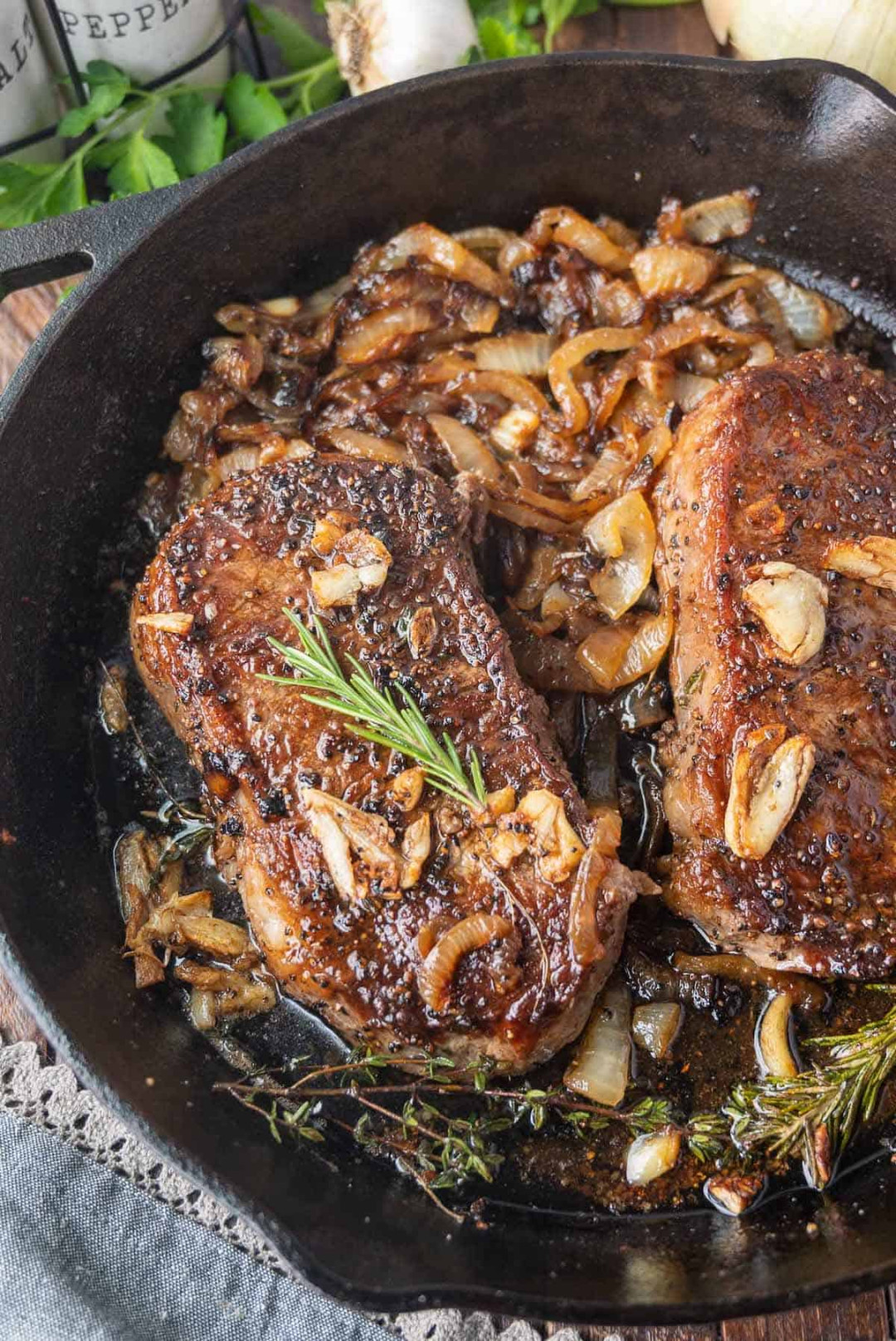Thin-cut rib-eye, a canvas of rich, marbled beef, is a culinary masterpiece waiting to be transformed. Today, we embark on a culinary adventure, blending the fiery passion of East Asian cuisine with the rustic charm of Western cooking. The result? A dish that tantalizes the taste buds, igniting a symphony of flavors that dances across the palate.
Ingredients:
1 pound thin-cut rib-eye steak, cut into 1-inch thick slices

Image Source: butteryourbiscuit.com
Preparation Process:
1. Marinate the Steak: In a shallow dish, combine soy sauce, rice wine vinegar, sesame oil, ginger, garlic powder, and red pepper flakes. Add the steak slices, ensuring they are evenly coated in the marinade. Cover and refrigerate for at least 30 minutes, or up to 2 hours.
2. Prepare the Batter: In a separate dish, combine cornstarch with 1/4 cup of water. Stir until a smooth batter forms.
3. Coat the Steak: Remove the marinated steak slices from the refrigerator. Dip each slice into the cornstarch batter, ensuring it is evenly coated.
4. Fry the Steak: Heat the vegetable oil in a large skillet or wok over medium-high heat. Carefully add the coated steak slices to the hot oil, frying until golden brown and cooked to your desired level of doneness. Remove the steak and set aside on a plate lined with paper towels.
5. Sauté the Vegetables: In the same skillet, add the green onions, red bell pepper, shiitake mushrooms, and minced garlic. Sauté until the vegetables are tender-crisp.
6. Create the Sauce: Combine soy sauce, honey, and rice wine vinegar in a small bowl. Pour the sauce over the sautéed vegetables and stir to coat.
7. Assemble the Dish: Plate the cooked steak slices and top with the flavorful vegetable mixture.
Total Time Required: 45 minutes
Serving Ideas:
Classic Pairing: Serve with steamed rice and a side of stir-fried bok choy.
Cultural Influences:
This dish is a harmonious blend of East and West. The marinade draws inspiration from the bold flavors of Chinese cuisine, while the cooking technique is rooted in Western culinary traditions. The addition of shiitake mushrooms and the use of soy sauce, rice wine vinegar, and sesame oil further elevate the dish, creating a truly global dining experience.
As we savor the flavors of this culinary fusion, we are reminded of the power of cultural exchange. The Dragon’s Kiss is more than just a dish; it is a testament to the beauty of diversity and the endless possibilities that arise when different culinary traditions intertwine.